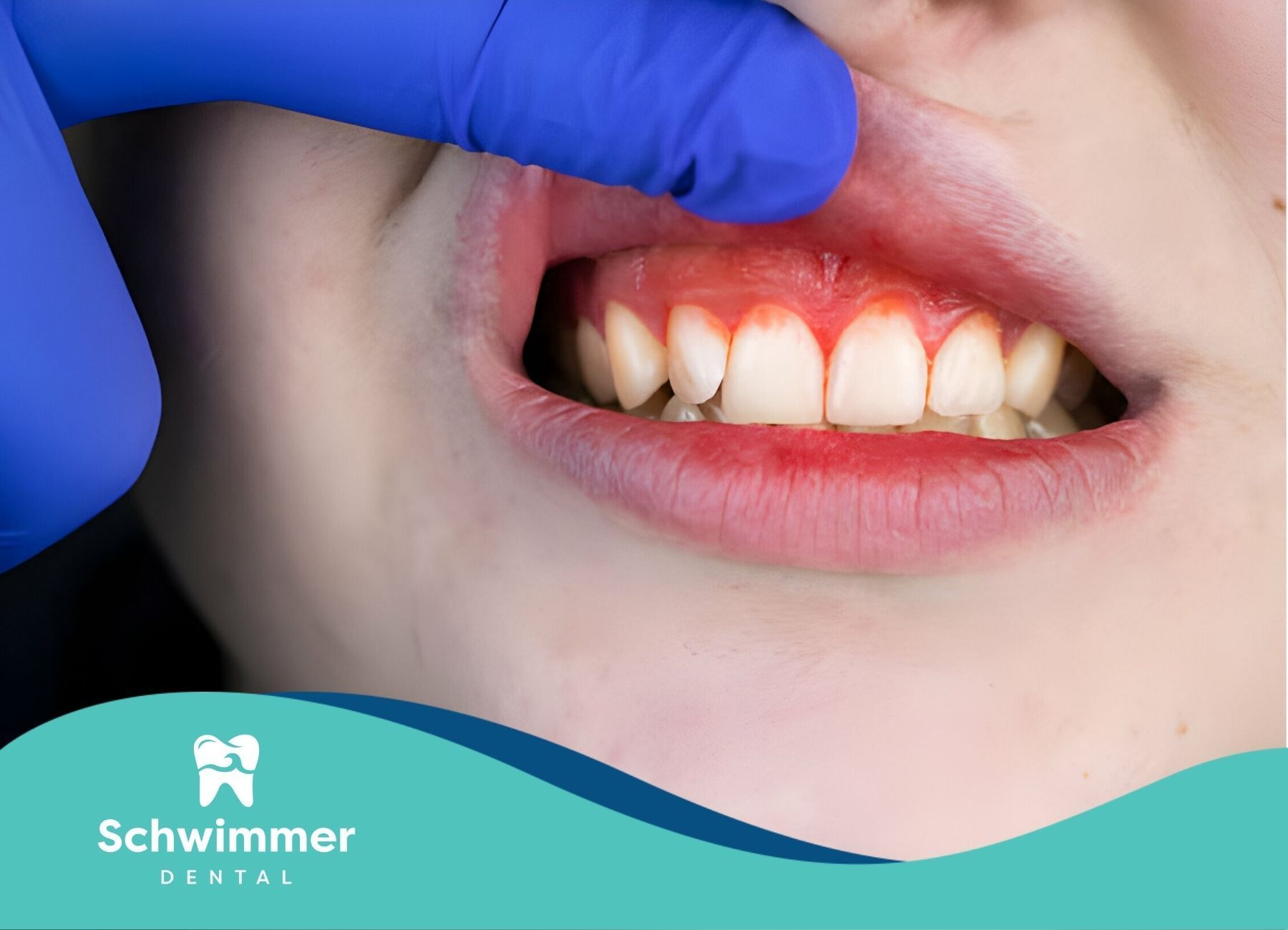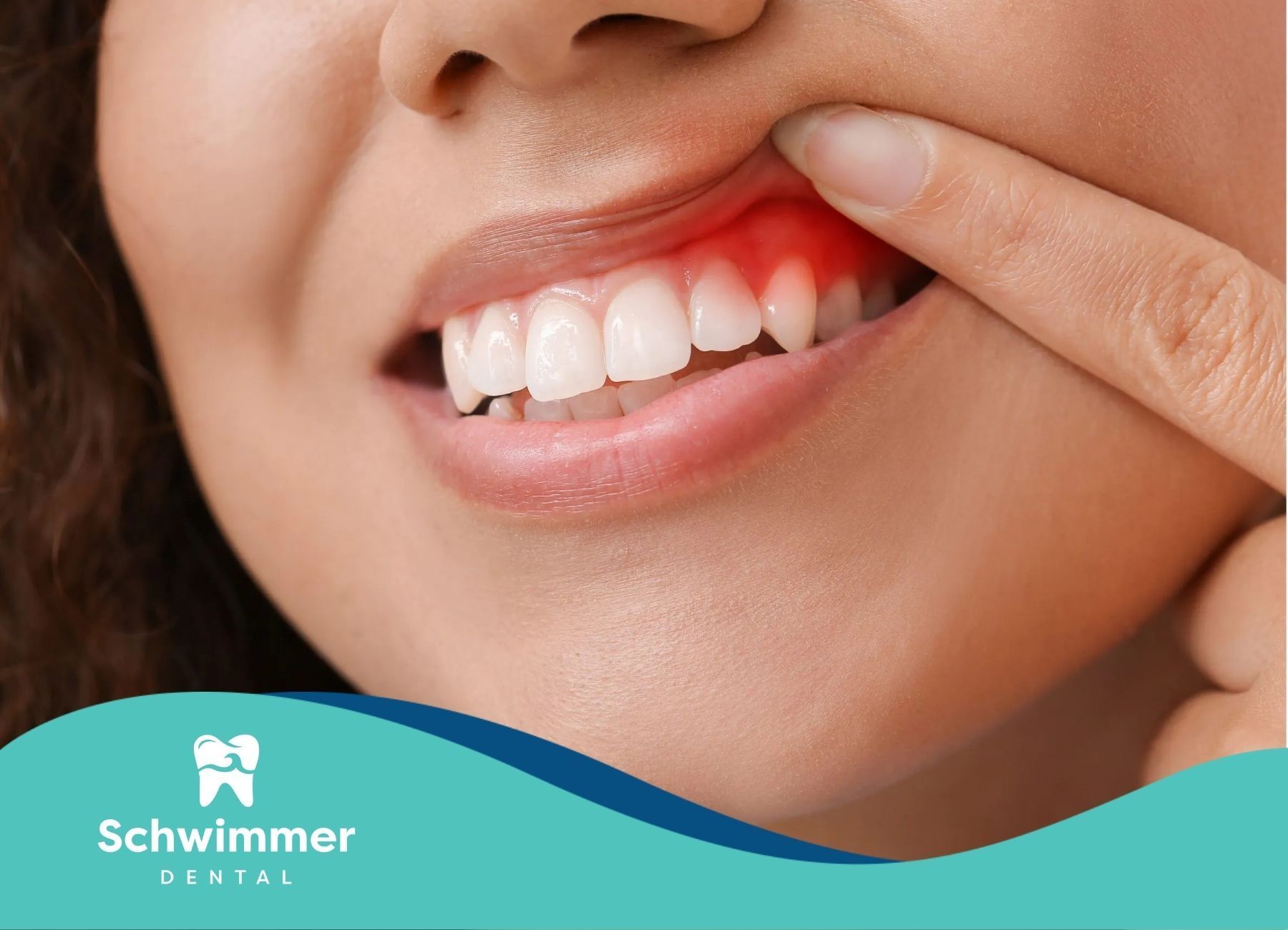Have an appointment? Complete the Intake Form
Parents' Guide to 5 Phases of Dental Hygiene Care
Key Highlights
- Maintaining good oral hygiene is vital for your child's overall health and well-being.
- Dental hygiene care is crucial for preventing oral diseases and keeping your child's smile bright.
- Professional dental cleanings play a crucial role in removing plaque and tartar buildup.
- Understanding the five phases of dental hygiene care can empower you to take charge of your child's oral health.
- This blog serves as a comprehensive guide to help you navigate each stage of your child's dental care journey.
Introduction
As parents, we want to give the best care for our children. This includes their oral health. Keeping good oral hygiene is important for more than just a nice smile. It is key to their overall health and well-being. Starting good oral hygiene habits at a young age helps prevent dental issues in the future.
Understanding the 5 Phases of Dental Hygiene Care
Dental hygiene care is more than just brushing and flossing. It involves several important steps. Dental professionals use a clear process that includes five main parts: Assessment, Diagnosis, Planning, Implementation, and Evaluation. Learning about these steps can help you understand how much care dental professionals give to your child's oral health.
This guide will take you through each step. It will explain why each step matters and what you can expect when your child goes to the dentist. Our goal is to give you the information and tools you need to make good choices about your child's dental hygiene and overall oral health.
The Significance of Initial Assessment
The first assessment is a key part of dental hygiene care. It means collecting important details about your child's medical history and current oral health. This step is important for creating a personalized dental care plan.
The dentist will start by looking at your child's medical history. This includes any existing health issues, allergies, medications they take, and previous medical procedures. Knowing this helps the dentist find any risks or issues with certain treatments.
Next, the dentist will ask about your child's oral hygiene habits. This includes how often they brush, if they floss, and what they eat. This information, along with a complete check-up, helps the dentist see the whole picture of your child's oral health. This sets the stage for a correct diagnosis and treatment plan.
Diagnosis: Identifying Dental Health Issues
After the first assessment, the next step is diagnosis. This means figuring out any specific oral health issues your child may have. This step is important to create a good treatment plan.
In the diagnosis stage, the dentist looks closely at the information from the assessment. They search for signs of dental problems. They will check for common issues like cavities, plaque buildup, and gum inflammation.
Finding dental problems early is key to stopping other issues and ensuring prompt care. With a clear diagnosis, the dentist can then make a personal treatment plan that fits your child's needs.
Deep Dive into Dental Hygiene Processes
Once the dentist understands your child's oral health, they move to the next important steps. These steps include planning and putting together a special dental care plan. This means the dentist will develop a way to fix any issues and keep your child's mouth healthy.
The planning step is about making a clear guide for your child's dental care. The dentist will think about the diagnosis, your child’s age, their overall health, and any concerns you have to create a personal care plan. Let’s see how these steps are completed.
Planning: Tailoring Personalized Dental Care Plans
Creating a personalized dental care plan is very important. It helps meet your child's specific needs. This plan acts like a guide for good oral health.
When making the plan, the dentist will suggest treatments. They will consider things like how serious the dental problems are, your child's age, and their overall health. The dentist will talk with you about the treatment options. They will explain the benefits and risks of each option.
Also, the dentist will stress the need for good dental hygiene at home. They will give you custom tips on how to brush properly, floss correctly, and what foods are best for long-lasting oral health.
Implementation: The Execution of Dental Treatments
The implementation phase is when your personal dental care plan starts. In this phase, the dentist will perform the needed treatments to fix any oral health issues you have.
Common treatments during this time may include professional teeth cleaning, which helps remove plaque and tartar buildup. There will also be fluoride treatment to make your tooth enamel stronger and prevent cavities. Dental sealants may be applied to protect weak teeth.
Besides these preventive steps, the dentist might suggest restorative treatments. These could be fillings for cavities or more complex procedures, like root canals for teeth that are badly damaged.
Evaluation: Assessing the Effectiveness of Dental Care
Evaluation is a constant task that goes on even after the first treatment plan is done. It means checking how well the dental care is working and making changes to keep good oral health.
It's very important to have regular follow-up visits during this time. At these appointments, the dentist will look at your child's teeth and gums. They will check how well your child is keeping their mouth clean and see how previous treatments are working. The dentist will also help with any new worries or questions you may have.
Keep in mind that keeping optimal oral health is a journey you will always be on, not just a one-time job. By working with your child's dentist and following their advice, you can help their smile stay healthy and bright for many years ahead.
Tailored Advice for Diverse Needs in Dental Hygiene
Children are not just smaller adults. Their dental needs change a lot based on their age and how they grow. It's important to use dental hygiene practices that match their specific needs. Older adults also face dental problems that come with age, so they need special care, too.
Let’s look at some helpful tips for different age groups. This will help us achieve optimal oral health for everyone. By knowing these specific needs, we can give better care to those we love.
Special Considerations for Children and Seniors
When we talk about children's oral health, starting early is very important. Good oral hygiene habits should begin from infancy. This helps prevent early childhood caries, which is also called baby bottle tooth decay. Once your baby's first tooth comes in, start brushing it gently with a soft brush and a little fluoride toothpaste.
Seniors can have dental problems because of age. These might include gum recession, dry mouth, or trouble brushing and flossing due to arthritis or other health issues. It's important to deal with these problems early through regular dental visits, professional cleanings, and special oral hygiene practices.
Also, it is crucial for seniors to eat a balanced diet full of fruits and vegetables for their overall health and dental care. Keeping regular contact with their dentist helps solve any questions quickly and makes sure they get the best senior dental care.
Recommendations for Individuals with Specific Dental Needs
People with special dental needs, like braces, dentures, or dental implants, need extra care. Braces can hold food particles, which can raise the risk of cavities and gum disease. So, it is important to clean your mouth carefully after meals and go for regular dental checkups.
For those who wear dentures, it's vital to clean and store them properly. This helps prevent fungal infections and keeps your mouth clean. Soaking dentures in a denture cleaner overnight and brushing them well before putting them on are good habits.
Also, keeping a balanced diet is important for your overall dental health. Reducing sugary foods and drinks is key to avoiding cavities and keeping your teeth and gums healthy.
Conclusion
To keep great oral health, you need to understand and follow five important steps based on your needs. These steps include assessments, creating care plans, carrying them out, and reviewing how they work. Each step is important for good dental hygiene. It's also important to think about children, seniors, and those with specific needs. Starting dental hygiene education early is a must. By using these tips, you can build good dental habits and avoid problems. Remember, taking care of your teeth leads to a healthy smile for a long time.
Frequently Asked Questions
What is the best age to start dental hygiene education for children?
The American Dental Association (ADA) suggests that children should start learning about dental hygiene as soon as their first tooth comes in. By developing good oral hygiene habits early, kids can help stop tooth decay and gum disease later on.
Need Assistance? We’re Here to Help
We are dedicated to enhancing your dental health and well-being.
We provide personalized dental care solutions for a confident, healthy smile.
Contact us today for Professional Dental Care.

Our caring staff will help you feel relaxed and comfortable in our state of the art office. We respect your time and pledge to deliver prompt service, backed by the latest knowledge, techniques, and technology.
Email: Office@schwimmerdental.com
Tel: (848) 294-2385
Fax: (732) 899-3347
Address: 1115 Arnold Ave,
Point Pleasant, NJ, 08742
Schwimmer Dental – Website by CWS


